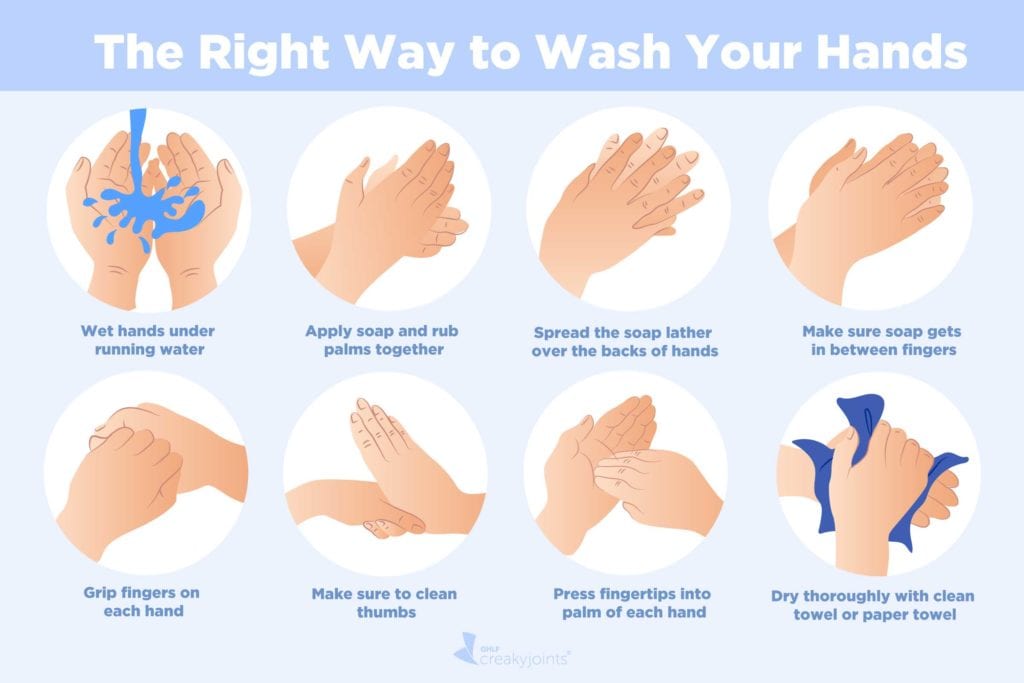Why Proper Hand Hygiene Is Important in Virus Prevention

The significance of hand hygiene in preventing the spread of viruses has gained substantial attention in recent years. This article aims to explore the rationale behind the importance of proper hand hygiene practices in virus prevention.
By examining the role of hand washing in minimizing the transmission of viruses, the link between hand hygiene and the spread of infectious diseases will be elucidated. Additionally, key steps to effectively practice hand hygiene will be outlined, emphasizing its crucial role in preventing the occurrence and transmission of viruses.
Promotion of hand hygiene as a vital measure in virus prevention will also be addressed.
Key Takeaways
- Hand hygiene plays a crucial role in preventing the transmission of viruses.
- Effective hand hygiene practices can reduce the risk of infection and transmission of viruses.
- Regularly cleaning hands removes pathogens and prevents their spread to others.
- Implementing hand hygiene practices at a population level reduces the burden of infectious diseases and protects vulnerable populations.
The Importance of Hand Hygiene in Virus Prevention
Proper hand hygiene plays a crucial role in preventing the transmission of viruses. The benefits of hand hygiene extend beyond personal health, as it also has a significant impact on public health.
Effective hand hygiene practices, such as washing hands with soap and water or using hand sanitizers, can reduce the risk of infection and subsequent transmission of viruses. By regularly cleaning hands, individuals can remove pathogens that may be present on their hands, preventing their spread to others. This is particularly important in crowded spaces and healthcare settings where the risk of infection is higher.
Implementing proper hand hygiene practices at a population level can help reduce the burden of infectious diseases, protect vulnerable populations, and contribute to overall public health.
Understanding the Role of Hand Washing in Virus Prevention
Effective hand washing techniques play a critical role in minimizing the transmission of pathogens and reducing the risk of infection. Understanding hand hygiene techniques is essential for maintaining good hand hygiene practices.
Here are some key benefits of proper handwashing:
- Preventing the spread of diseases: Regular hand washing with soap and water can effectively remove pathogens from the hands, preventing the transmission of diseases such as respiratory infections, gastrointestinal illnesses, and skin infections.
- Protecting vulnerable populations: Proper hand hygiene is especially crucial in healthcare settings, where vulnerable individuals, such as patients with weakened immune systems, are at a higher risk of acquiring infections.
- Promoting overall well-being: Practicing good hand hygiene not only prevents the spread of diseases but also contributes to overall health and well-being by reducing the risk of illness and the burden on healthcare systems.
Proper Hand Hygiene Practices for Virus Prevention
This discussion will explore two key points related to proper hand hygiene practices for virus prevention: effective handwashing techniques and the role of hand sanitizers.
Effective handwashing techniques involve using soap and water for a sufficient amount of time, ensuring all surfaces of the hands are thoroughly cleaned.
The role of hand sanitizers, on the other hand, lies in their ability to kill a wide range of germs when soap and water are not readily available.
Effective Handwashing Techniques
An important aspect of hand hygiene in virus prevention is the utilization of correct handwashing techniques. Effective handwashing techniques are crucial in preventing the transmission of viruses and maintaining public health.
The importance of hand hygiene lies in the fact that our hands come into contact with various surfaces throughout the day, some of which may be contaminated with pathogenic microorganisms. Proper handwashing with soap and water for at least 20 seconds can help remove and kill these pathogens, reducing the risk of infection.
It is essential to ensure that all areas of the hands, including the palms, back, fingers, and nails, are thoroughly cleaned during handwashing. Additionally, the technique of rubbing the hands together vigorously helps to dislodge and remove any dirt or microorganisms present.
Role of Hand Sanitizers
The role of hand sanitizers in maintaining public health and preventing the spread of pathogens is well-documented in scientific literature. Hand sanitizers offer several advantages in the realm of hand hygiene:
- Convenience: Hand sanitizers are portable and can be used in situations where soap and water are not readily available.
- Efficiency: Hand sanitizers can effectively kill a wide range of microorganisms, including bacteria and viruses.
- Accessibility: Hand sanitizers are easily accessible and can be found in various settings, such as hospitals, schools, and public spaces.
However, it is important to consider alternatives to hand sanitizers, as their frequent use can have an impact on skin health. The high alcohol content in hand sanitizers can lead to dryness, irritation, and even skin damage.
Therefore, it is crucial to strike a balance between the use of hand sanitizers and other hand hygiene practices, such as regular handwashing with soap and water, to maintain both public health and optimal skin condition.
The Link Between Hand Hygiene and Virus Spread
This paragraph introduces a discussion on the link between hand hygiene and virus spread, focusing on the key points of hand hygiene essentials, virus transmission prevention, and the importance of handwashing.
Proper hand hygiene practices, such as regular handwashing with soap and water or the use of hand sanitizers, are essential in preventing the transmission of viruses.
Hand Hygiene Essentials
Effective hand hygiene is crucial in preventing the spread of viruses and should be practiced regularly. Hand hygiene products play a significant role in maintaining proper hand hygiene. These products include soap, hand sanitizers, and antiseptic wipes.
Soap, when used with water, helps to remove dirt, oils, and microorganisms from the hands. Hand sanitizers, on the other hand, contain alcohol or other disinfecting agents that effectively kill germs. Additionally, antiseptic wipes provide a convenient option for hand hygiene when soap and water are not readily available.
Alongside hand hygiene products, hand hygiene education and awareness are essential. Educational campaigns can help individuals understand the importance of hand hygiene and teach proper handwashing techniques. Increased awareness can lead to a higher level of personal responsibility and adherence to proper hand hygiene practices, ultimately contributing to the prevention of virus spread.
Virus Transmission Prevention
Virus transmission control is crucial in preventing the spread of infectious diseases. Proper hand hygiene practices play a significant role in minimizing the risk of transmission. Here are three key reasons why hand hygiene is important in virus prevention:
- Reduces direct transmission: Viruses can easily spread through direct contact with infected surfaces or individuals. Regular handwashing with soap and water or using hand sanitizers can effectively remove or kill the viruses present on the hands, preventing their transfer to the face or other surfaces.
- Limits indirect transmission: Hands act as a vehicle for transferring viruses from one surface to another. By maintaining good hand hygiene, individuals can break the chain of transmission by preventing the contamination of objects and surfaces they come in contact with.
- Protects vulnerable populations: Proper hand hygiene is particularly crucial for protecting vulnerable populations such as the elderly, young children, and individuals with weakened immune systems. By practicing good hand hygiene, individuals can reduce the risk of transmitting viruses to those who are more susceptible to severe illness.
Importance of Handwashing
Regular and thorough handwashing practices are crucial in minimizing the risk of disease transmission and maintaining public health. The science behind handwashing is based on the ability of soap and water to remove dirt, oils, and microorganisms from the skin. When hands are not washed properly, germs can easily spread and cause infections. Hand hygiene plays a vital role in daily life, offering numerous benefits. It helps prevent the spread of respiratory and gastrointestinal infections, reduces the risk of foodborne illnesses, and protects against the transmission of viruses, such as the common cold and flu. Additionally, proper handwashing can also prevent the spread of antibiotic-resistant bacteria, which is a growing concern in healthcare settings. In summary, practicing good hand hygiene is a simple yet effective way to protect oneself and others from infectious diseases.
| Benefits of Hand Hygiene | Examples |
|---|---|
| Prevents infections | Common cold, flu |
| Reduces foodborne illnesses | Salmonella, E. coli |
| Protects against antibiotic-resistant bacteria | MRSA, VRE |
Key Steps to Effectively Practice Hand Hygiene for Virus Prevention
One crucial aspect in practicing proper hand hygiene for virus prevention involves following a set of key steps. These steps include:
- Thoroughly washing hands with soap and water for at least 20 seconds.
- Paying attention to all surfaces of the hands, including the backs, between fingers, and under nails.
- Rinsing hands thoroughly to remove all soap residue.
- Drying hands completely using a clean towel or air dryer.
Effective handwashing techniques are essential in removing dirt, germs, and viruses from the hands. However, in situations where soap and water are not readily available, the role of hand sanitizers becomes vital. Hand sanitizers, containing at least 60% alcohol, can effectively kill many types of pathogens, including viruses. It is important to apply enough sanitizer to cover all surfaces of the hands and rub them together until dry.
Hand Hygiene: A Crucial Aspect of Virus Prevention
Proper hand hygiene plays a crucial role in preventing the spread of viruses. To effectively practice hand hygiene, individuals need to be aware of its importance and be educated on the correct techniques.
Hand hygiene awareness is essential in promoting behavioral change and ensuring compliance with recommended practices. By understanding the risks associated with inadequate hand hygiene, individuals are more likely to prioritize this preventive measure.
Moreover, hand hygiene education equips individuals with the necessary knowledge on when and how to perform hand hygiene correctly. This includes using soap and water or hand sanitizers, and paying attention to all hand surfaces, including the fingertips and nails.
Promoting Hand Hygiene as a Vital Measure in Virus Prevention
Promoting awareness and education of effective hand hygiene practices is crucial in mitigating the transmission of viruses. Hand hygiene, specifically handwashing with soap and water, has been proven as one of the most effective measures to prevent the spread of infectious diseases.
The benefits of hand hygiene include:
- Reduction of disease transmission: Proper handwashing can significantly reduce the transmission of viruses from contaminated hands to the face or other surfaces.
- Prevention of cross-contamination: Regular hand hygiene practices can prevent the transfer of viruses from one person to another, especially in high-risk settings such as healthcare facilities.
- Protection of vulnerable populations: Promoting handwashing awareness is particularly important in protecting vulnerable populations, such as children, elderly individuals, and those with compromised immune systems, who are more susceptible to infections.
Overall, promoting hand hygiene as a vital measure in virus prevention is crucial to safeguard public health and reduce the burden of infectious diseases.
Frequently Asked Questions
How Often Should I Wash My Hands to Effectively Prevent the Spread of Viruses?
To effectively prevent the spread of viruses, it is crucial to adhere to proper hand hygiene practices. This includes washing hands frequently and thoroughly, following recommended techniques and guidelines provided by health authorities.
Can Hand Sanitizer Be Used as an Alternative to Hand Washing for Virus Prevention?
Hand sanitizer can be used as an alternative to hand washing for virus prevention. However, its effectiveness is dependent on factors such as the type of virus and the concentration of alcohol in the sanitizer. Soap and water remain the gold standard for hand hygiene.
Are There Any Specific Hand Hygiene Practices That Are More Effective in Preventing the Spread of Viruses?
Effective hand hygiene practices are crucial in preventing the spread of viruses, particularly in healthcare settings. Research has shown that proper handwashing with soap and water for at least 20 seconds is more effective than using hand sanitizer alone.
Does the Temperature of Water Used for Hand Washing Affect Its Effectiveness in Virus Prevention?
The effectiveness of soap usage and the impact of hand hygiene on overall health should be considered when discussing the influence of water temperature on virus prevention through hand washing.
What Role Does Hand Hygiene Play in Preventing the Transmission of Viruses in Public Places?
Hand hygiene practices play a crucial role in preventing the transmission of viruses in public places. Maintaining proper hand hygiene is of utmost importance as it reduces the risk of contamination and helps prevent the spread of viruses.









